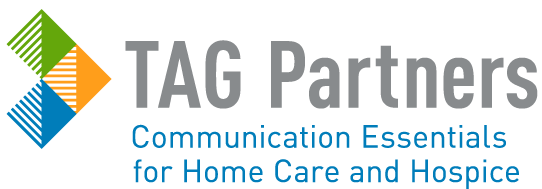November is quickly approaching, which means National Home Care and Hospice Month is almost here.
It is a time to honor the caregiving heroes who make an incredible difference in the lives of the patients and families they serve. Home care and hospice agencies can spend the month spreading the word about the great work done by their agency’s professionals. Be sure to share the love with your staff too!
Want some tips to help you get started? We have a few tips and tricks.
Visit the National Association for Home Care and Hospice and the National Hospice and Palliative Care Organization websites. You can get the most up-to-date facts and statistics on home care and hospice, as well as resources to help you plan activities this National Home Care and Hospice Month.
Make your staff feel extra special and spread awareness about your agency’s purpose. We created marketing materials specifically to help you with this effort. Click here to see an overview of the products on our web store.
Present a Physician of the Year award to the doctor who has been most supportive of hospice or home care in your medical community. Be sure to send a news release to your local media outlets announcing the award.
Promote National Home Care and Hospice Month with fun and educational marketing materials. From retractable banners to magnets, we have a wide variety of promo items for you to put around your agency or hand out to others.
Organize a community event to give back to others. An event, such as a food drive for needy patients, is a nice way to support your community.
Create a social media post about home care or hospice and how it helps the lives of patients. Stories from your clients or the families of clients who can speak about the work you do can really elevate your story.
TAG is grateful for all of the work the hospice and home health industries do for others! We are humbled to support the people who work in this field.






